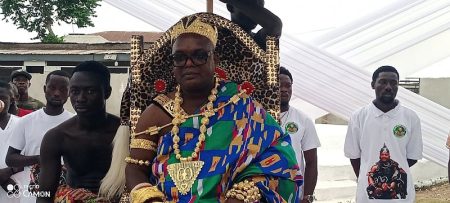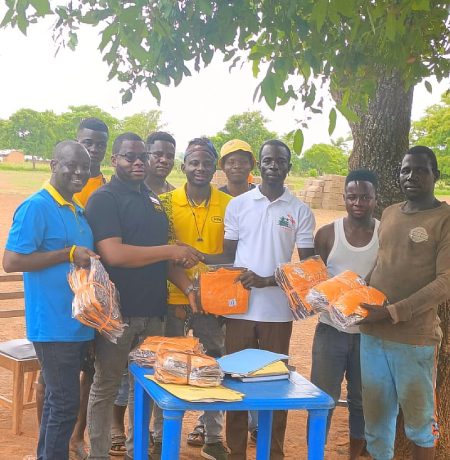The Case Against Nana Agradaa: Unlawful Distribution of Intimate Images
Patricia Asiedua Asiamah, widely recognized as Nana Agradaa, the founder of Heaven Way Champion International Ministry, finds herself entangled in yet another legal battle. This time, she and three other individuals are facing charges related to the unlawful distribution of intimate images, specifically nude photographs of Prophet Emmanuel Appiah Fomum. The Accra High Court has directed prison authorities to ensure Agradaa’s presence at the upcoming hearings, marking a significant development in the case. Agradaa is currently serving a 15-year prison sentence at Nsawam Prison for separate convictions involving charlatanic advertisement and defrauding by false pretenses. This latest legal challenge adds another layer of complexity to her already precarious situation.
The court’s directive comes after the dismissal of a submission of no case filed by Agradaa’s legal team. The judge ruled that all four accused individuals have a case to answer, compelling them to open their defense. This decision underscores the seriousness of the allegations and sets the stage for a potentially lengthy and complex legal process. While Agradaa was absent from the courtroom during this crucial ruling, the prosecution confirmed her continued lawful custody, assuring the court that a warrant had been requested to ensure her presence at subsequent hearings.
Agradaa’s defense lawyer attempted to postpone the ruling until she could be present, but the request was denied. This reinforces the court’s commitment to ensuring the timely progression of the case, irrespective of individual circumstances. The court further instructed all parties to file witness statements within two weeks, setting the stage for a Case Management Conference (CMC) scheduled for July 30, 2025. This structured approach reflects the court’s intention to manage the case efficiently, ensuring a fair and transparent legal process.
The charges against Agradaa and her co-accused stem from an incident on July 11, 2024, during a live broadcast of her program, “Yi Wasum,” on Thunder TV (now rebranded as Today’s TV). During the broadcast, which was also streamed on YouTube and Facebook, Agradaa allegedly displayed nude photos of Prophet Fomum. The prosecution further contends that Agradaa subsequently shared these images with a third party via WhatsApp. These actions constitute a violation of the Cybersecurity Act, 2020 (Act 1038), which prohibits the possession and distribution of obscene material and the non-consensual sharing of intimate images.
Agradaa’s three co-accused, Enock Owusu Kissi, Charles Omane (alias One Gig), and Emmanuel Kofi Gyasi, face charges of abetment and conspiracy to commit a crime related to the unlawful publication of intimate images. Their alleged involvement centers on their participation as panelists on Agradaa’s program during the incident in question. According to the prosecution, they actively mocked Prophet Fomum’s nudity during the broadcast, contributing to the humiliation and distress caused by the public display of the images.
This case, initially dismissed by the Circuit Court, was later refiled at the High Court by state prosecutors, demonstrating the prosecution’s determination to pursue justice for the alleged victim. The High Court’s recent rulings signify a step forward in the legal process, setting the stage for Agradaa and her co-accused to present their defense. The upcoming CMC will provide a structured framework for managing the case, ensuring the timely and efficient presentation of evidence and arguments.
The trial against Nana Agradaa and her co-accused highlights the growing legal scrutiny surrounding the dissemination of intimate images without consent. The case underscores the importance of respecting individual privacy in the digital age and the potential legal consequences of violating such privacy. The outcome of this trial will likely set a precedent in Ghanaian jurisprudence, influencing future interpretations and applications of the Cybersecurity Act in similar cases. As the trial unfolds, it will undoubtedly draw significant public attention, raising awareness about the legal and ethical considerations surrounding the sharing of private images in the digital realm. The court’s commitment to upholding the law and protecting individual privacy will be closely observed as this case progresses.














